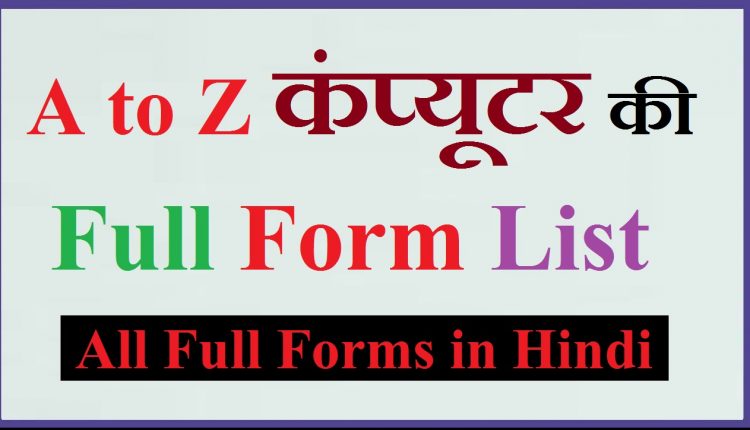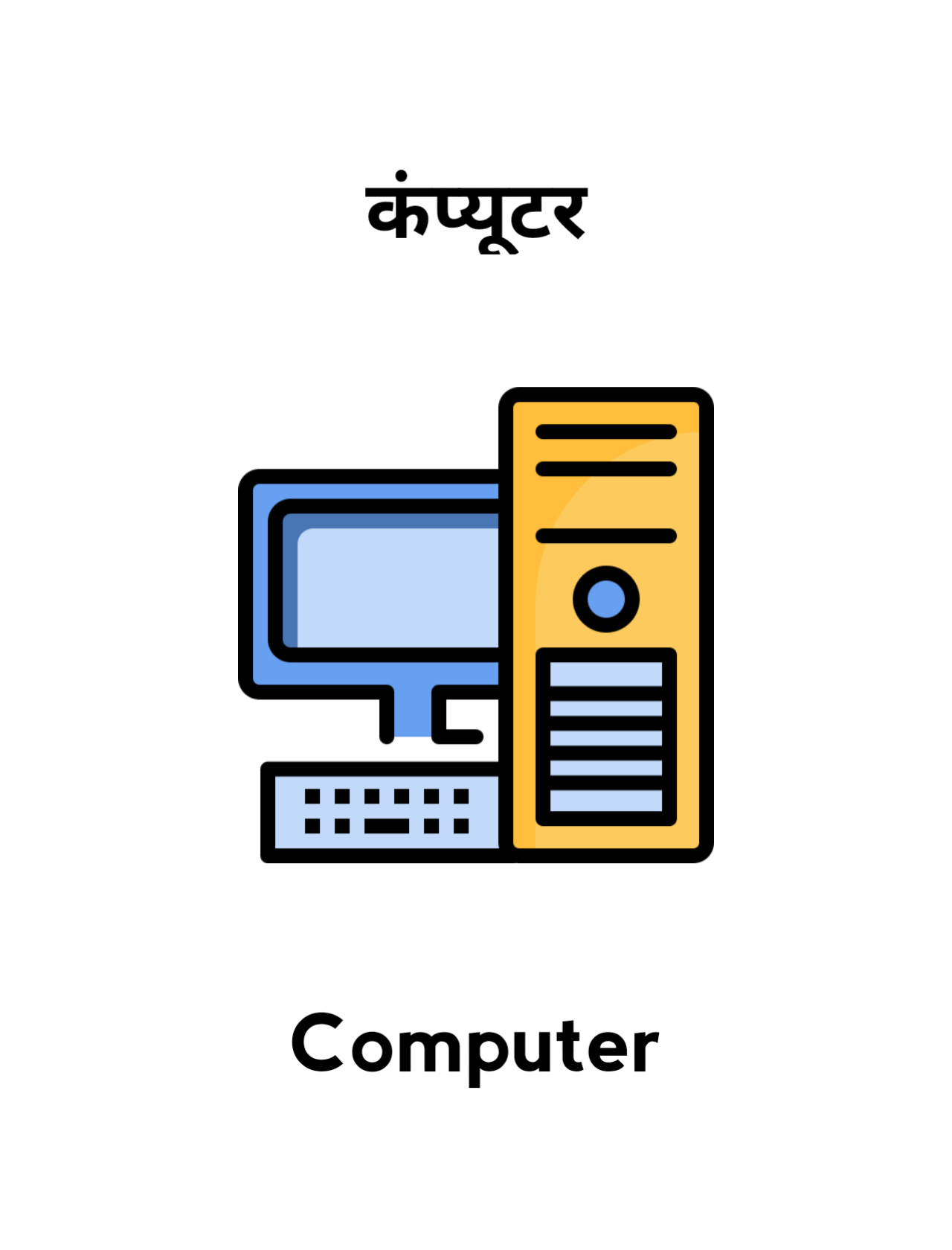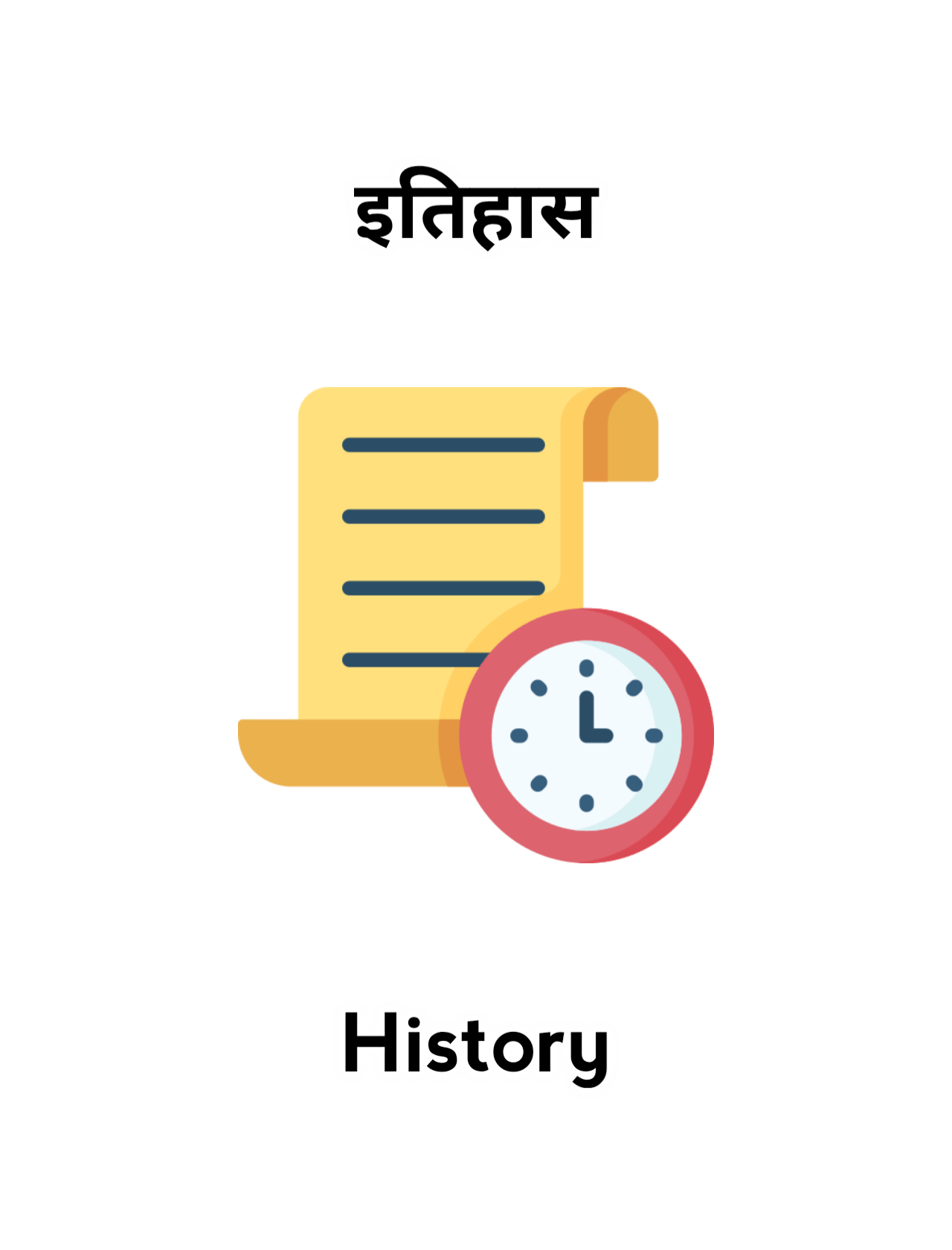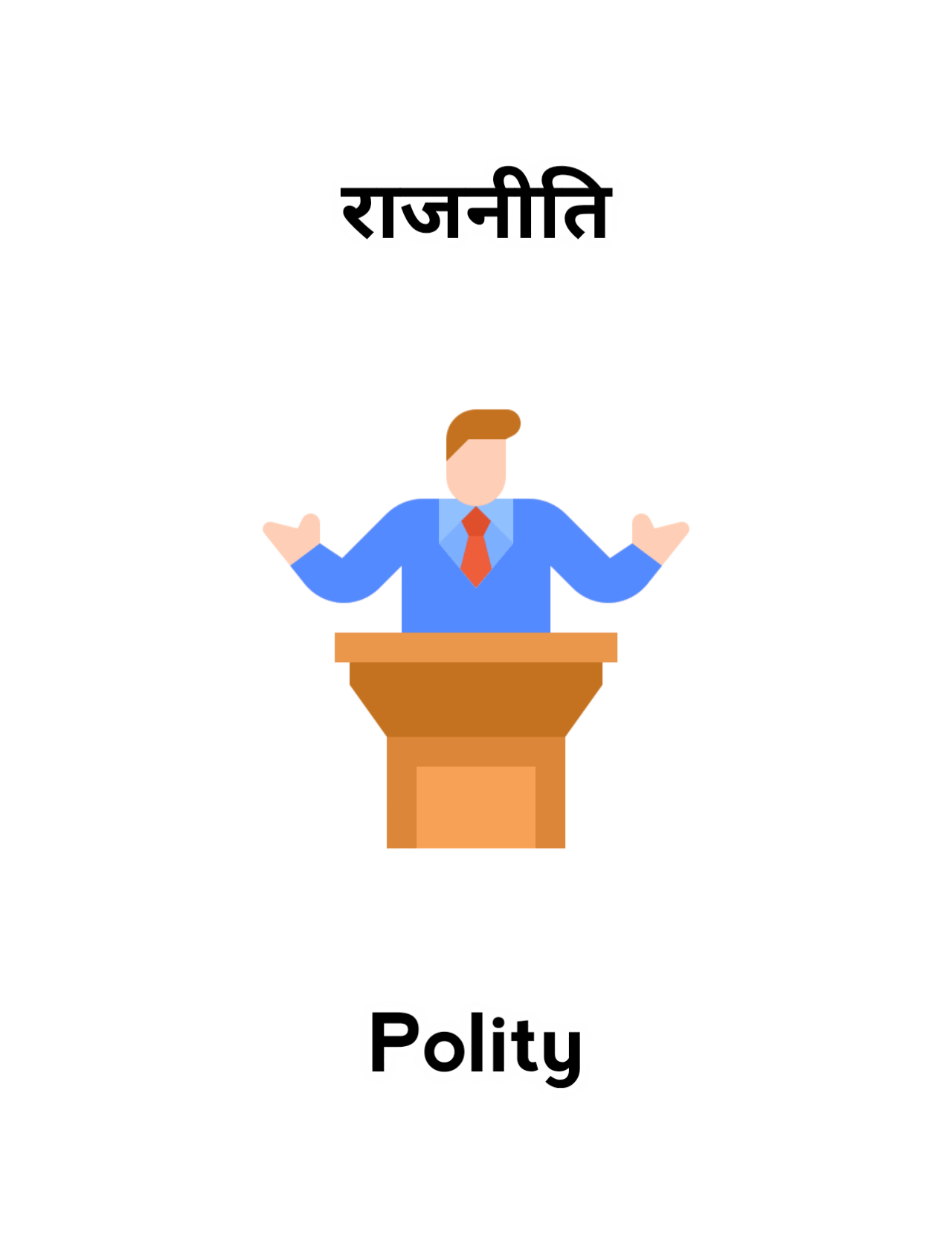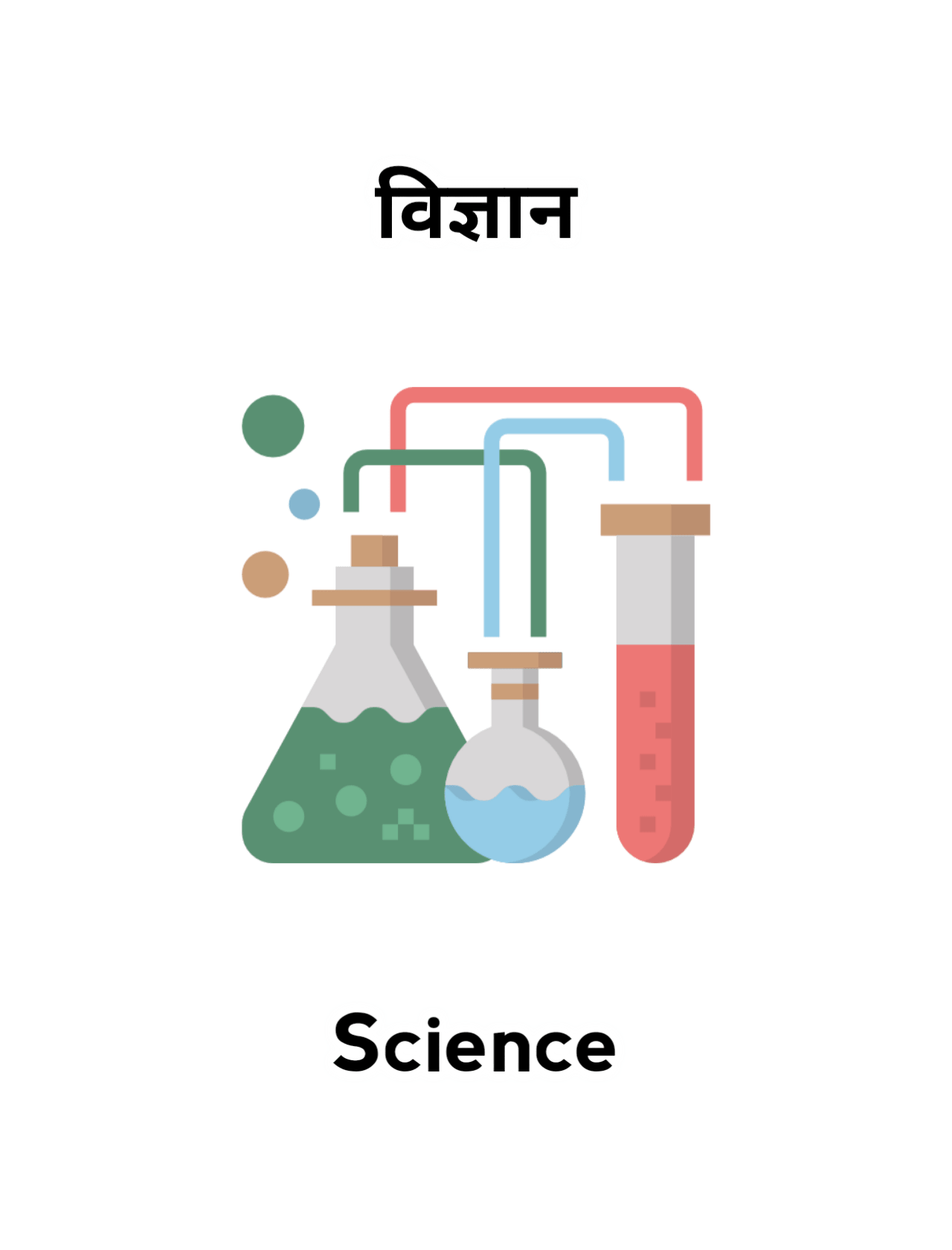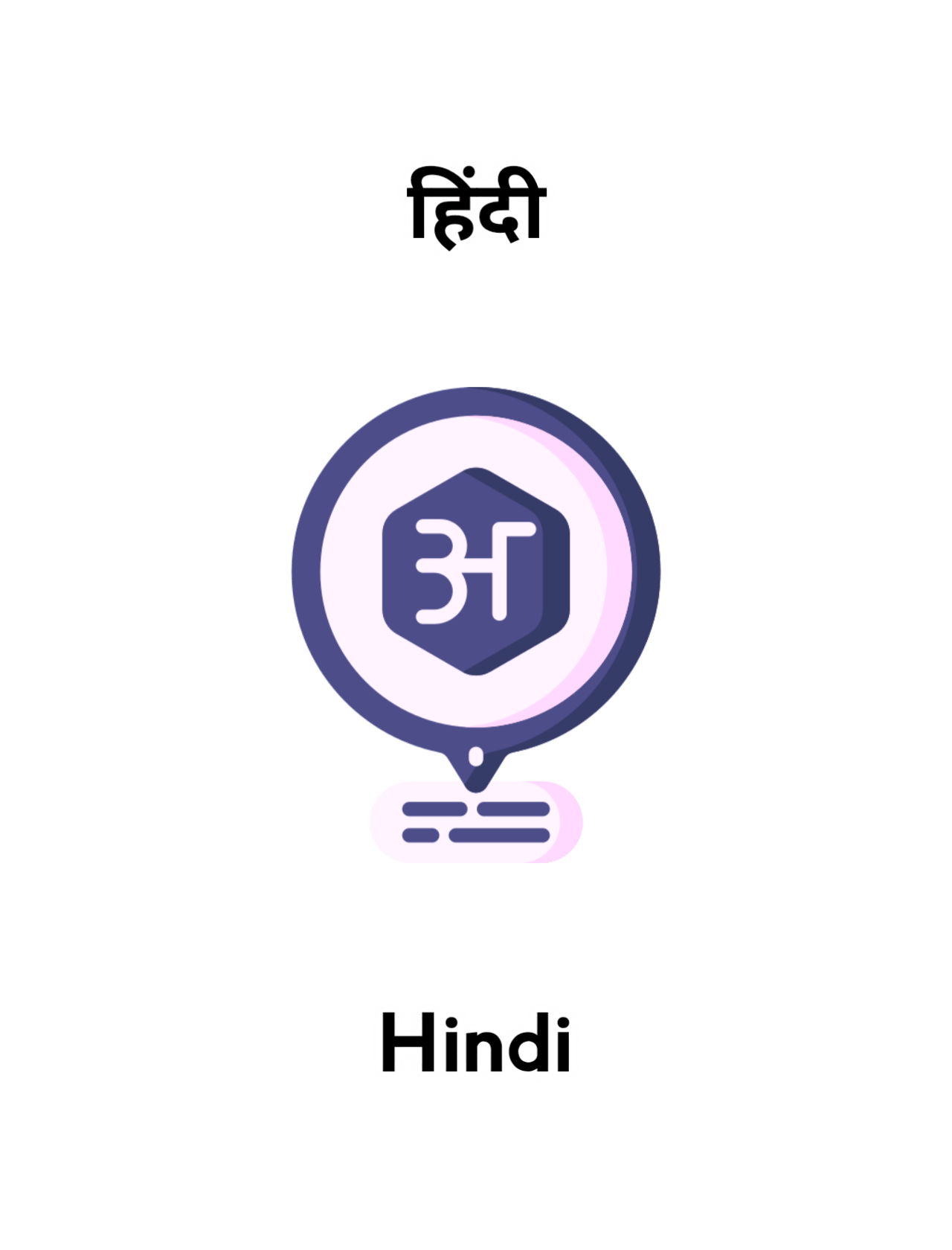Computer Full Form All A to Z Full Forms Lists
Hello Friends
To make your competitive exams even easier, today we have brought for you Computer Full Form All A to Z Full Forms Lists This pdf will play a very important role in your upcoming competitive exams like – Bank Railway Rrb Ntpc Ssc Cgl and many other exams.
This pdf is very important for the exam, it is being provided to you absolutely free, which you can download by clicking on the Download button below to get even more important pdfs. A. You can go pdf download in Riletid Notes
Allexampdf.com is an online education platform, here you can download Pdf for all competitive exams like – Bank Railway Rrb Ntpc Upsc Ssc Cgl and also for other competitive exams.
Allexampdf.com will update many more new Pdfs, keep visiting and update our posts and more people will get it
- Indian Geography PDF in Hindi ( Most Important 250 भूगोल प्रश्नोतरी )
- List of International Organisations with their Heads, Headquarters and Formation Year
- 100+ इ ितहास (History ) Best Questions and Answers (Objective in Hindi)
- विश्व का भूगोल से संबंधित 300 Most Important General Knowledge
- आधुनिक भारत पर बहुत ही शानदार नोट्स – महत्वपूर्ण प्रश्न उत्तर के साथ हिंदी में
- Most Important General Knowledge PDF
- All Lucent Books In Hindi/English PDF
- Geography Important Notes PDF
- सिंधु घाटी सभ्यता नोट्स PDF
- GK Tricks for SSC, BANK AND RAILWAYS
- आधुनिक भारत का इतिहास Sam- Samyayik Ghatna Chakra Modern History
- 10000 Gk Questions In Hindi With Answers
- Indian Geography Notes PDF Free Download
- 777+ Most Important GK One Liner Question in Hindi
- सामान्य विज्ञान – अतिमहत्वपूर्ण 500+ प्रश्नोत्तरी PDF
What is the full form of COMPUTER?
Computer का आविष्कार “चार्ल्स बबेज” ने किया था | कंप्यूटर “गणना” शब्द से लिया गया एक शब्द है जिसका अर्थ गणना करना है। तो, सरल शब्दों में आप कह सकते हैं कि कंप्यूटर एक इलेक्ट्रॉनिक उपकरण है जिसका उपयोग तेजी से गणना के लिए किया जाता है। कंप्यूटर एक सामान्य उद्देश्य वाला इलेक्ट्रॉनिक उपकरण है जो स्वचालित रूप से अंकगणित और तार्किक संचालन करने के लिए उपयोग किया जाता है। एक कंप्यूटर में एक केंद्रीय प्रसंस्करण इकाई और कुछ प्रकार की मेमोरी होती है।
COMPUTER = Arithmetical Logical Unit (ALU) + Control Unit (CU)
ALU: “Arithmetic Logical Unit” is used to carry out arithmetic and logical operation.
CU: The “control unit (CU)” is used to change the order of operations in response to stored information.
Full Form of Computer
आइये हम देखते है Computer Full Form क्या है और इसकी फुल फॉर्म को अच्छे से समझते है क्योंकि कंप्यूटर वर्ड में सभी लेटर का एक महत्वपूर्ण योगदान है जिसको मिलकर ही कंप्यूटर का निर्माण होता है
- C – Commonly
- O – Operation
- M – Machine
- P – Particularly
- U – Used for
- T – Technical
- E – Educational
- R – Research
Categorization on the basis of technology
- डिजिटल कम्प्यूटर (Digital Computer)
- एनालॉग कंप्यूटर (Analog Computer)
- हाइब्रिड कंप्यूटर (Hybrid Computer)
Categorization on the basis of generation
- पहली पीढ़ी के कंप्यूटर (1st Generation Computer) : (1940-1956) वैक्यूम ट्यूब पर आधारित।
- दूसरी पीढ़ी के कंप्यूटर (2nd Generation Computer): (1956-1963) ट्रांजिस्टर के आधार पर
- तीसरी पीढ़ी के कंप्यूटर (3rd Generation Computer): (1964-1971) एकीकृत सर्किट पर आधारित
- फोर्थ जनरेशन कंप्यूटर (4th Generation Computer): (1971- वर्तमान) माइक्रोप्रोसेसरों पर आधारित है
- पांचवीं पीढ़ी के कंप्यूटर (5th Generation Computer): (वर्तमान और परे) आर्टिफिशियल इंटेलिजेंस (AI) पर आधारित
कम्प्यूटर से संबंधित Full Forms
- ALU – Arithmetic Logic Unit
- ALGOL – Algorithmic Language
- ASCII – American Standard Code For Information Interchange
- BCD – Binary Coded Decimal Code
- CPU – Central Processing Unit
- CAD – Computer-Aided Design
- COBOL – Common Business Oriented Language
- CD – Compact Disk
- C-DOT – Center for Development of Telematics
- CLASS – Computer Literacy And Studies in School
- COMAL – Common Algorithmic Language
- DOS – Disk Operating System
- DTS – Desk Top System
- DTP – Desk Top Publishing
- E-Commerce – Electronic Commerce
- E-Mail – Electronic Commerce
- E-Mail – Electronic Mail
- ENIAC – Electronic Numerical Integrator and Computer
- FORTRAN – Formula Translation
- FAX – Far away Xerox
- Flops – Floating Operations per Second
- HLL – High-Level Languages
- HTML – High Text Markup Language
- IBM – International Business Machine
- IC – Integrated Circuit
- LAN – Local Area Network
- LDU – Liquid Display Unit
- LISP – List Processing
- LLL – Low Level Language
- MICR – Magnetic Ink Character Reader
- MIPS – Millions of Instructions Per Second
- MOPS – Millions of Operation per Second
- MODEM – Modulator – Demodulate
- NICNET – National Information Center Network
- OMR – Optical Mark Reader
- PC-DOS – Personal Computer Disk Operating System
- PROM – Programmable Read-only Memory
- RAM – Random Access Memory
- ROM – Read Only Memory
- RPG – Report Programmer Generator
- SNOBOL – String Oriented Symbolic Language
- VDU – Visual Display Unit
- VLSI – Very Large Scale Integration
- WAN – Wide Area Network
- WWW – World Wide Web
Important Compter PDFs
- Computer GK in Hindi PDF Free Download
- 1500 Important Computer Questions PDF
- Computer Gk 500 Important Questions PDF
- Super 200+ Computer Questions In Hindi PDF
- Computer Book PDF Free Download
- Computer Most Important Objective Questions In Hindi PDF
- Computer Full Forms All A to Z Lists
- Important Computer Questions In Hindi Pdf
- Computer Gk In Hindi PDF
- Computer Objective Questions Free Pdf
Computer Full Forms SET – A
- AAC: Advanced Audio Coding
- ABI: Application Binary Interface
- AHA: Accelerated Hub Architecture
- ALGOL: Algorithmic Language
- AJAX: Asynchronous JavaScript and XML
- ABR: Available Bit Rate
- AD: Active Directory
- ADC: Analog – to – Digital Converter / Apple Display Connector (DVI Variant)
- ALU: Arithmetic Logical Unit
- AMD: Advanced Micro Devices
- AMR: Audio Modern Riser
- APCI: Application – Layer Protocol Control Information
- ASP: Application Service Provider / Active Server Pages
- AST: Abstract Syntax Tree
- ATA: Advanced Technology Attachment
- API: Application Programming Interface
- AVC: Advanced Video Coding
- AVI: Audio Video Interleaved
- AWT: Abstract Window ToolKit
- ARPANET: Advanced Research Projects Agency Network
- ASCII: American Standard Code for Information Interchange
- ATM: Asynchronous Transfer Mode
SET – B
- BAL: Basic Assembly Language
- BER: Bit Error Rate
- BFD: Binary File Descriptor
- BGP: Border Gateway Protocol
- BiDi: Bi-Directional
- BIN: Binary
- BASIC: Beginner All-Purpose Symbolic Instruction Code
- BCD: Binary Coded Decimal
- BINAC: Binary Automatic Computer
- BIOS: Basic Input Output System
- BPS: Bits Per Second
- BMP: Basic Multilingual Plane
- BT: BitTorrent / Bluetooth
- BW: Bandwidth
- BIT: A Binary Digit
- BLOB: Binary Large Object
- BLOG: Web Log
SET – C
- CAI: Computer – Aided Instruction
- CAQA: Computer – Aided Quality Assurance
- CC: C Compiler / Carbon Copy
- CAD: Computer – Aided Design
- CAE: Computer – Aided Engineering
- CD: Compact Disk / Change Directory
- CDMA: Code Division Multiple Access
- CD-RW: Compact Disk – Rewritable
- CG: Computer Graphics
- CGA: Color Graphics Array
- CD-R: Compact Disk – Recordable
SET – D
- DAT: Digital Audio Tape
- DB: DataBase
- DCC: Direct Client – to – Client
- DDR: Double Data Rate
- DES: Data Encryption Standard
- DFD: Data Flow Diagram
- DAO: Data Access Objects
- DAP: Direct Access Protocol
- DFS: Distributed File System
- DBA: Database Administrator
- DBMS: Database Management System
SET – E
- ECU: Extended Unix Code
- EST: Electrostatic Discharge
- EXE: Executable
- EBCDIC: Extended Binary Coded Decimal Interchange Code
- EEPROM: Electronically Erasable Programmable Read-Only memory
- ENIAC: Electronic Numerical Integrator and Computer
- EOF: End of File
- EOL: End of Line
SET – F
- FS: File System
- FSB: Front Side Bus
- FTP: File Transfer Protocol
- FXP: File Exchange Protocol
- FAT: File Allocation Table
- FAQ: Frequently Asked Questions
- FDC: Floppy Disk Controller
- FHS: Filesystem Hierarchy Standard
- FCS: Frame Check Sequence
- FPU: Floating Point Unit
- FDD: Floppy Disk Drive
- FDMA: Frequency-Division Multiple Access
- FIFO: First In First Out
SET – G
- Gb: Gigabit
- GPRS: General Packet Radio Service
- GPU: Graphics Processing Unit
- GUI: Graphical User Interface
- GB: Gigabyte
- GIGO: Garbage In Garbage Out
SET – H
- HTM: Hierarchical Temporal Memory
- HTML: Hypertext Markup Language
- HTTP: Hypertext Transfer Protocol
- HTTPD: Hypertext Transfer Protocol Daemon
- HAL: Hardware Abstraction Layer
- HCI: Human-Computer Interaction
- HID: Human Interface Device
- HIG: Human Interface Guidelines
- HP: Hewlett-Packard
- HPFS: High-Performance File System
- HT: Hyper-Threading
- HD: High Density
- HDD: Hard Disk Drive
SET – I
- ICP: Internet Cache Protocol
- ICT: Information and Communication Technology
- IDL: Interface Definition Language
- IDE: Integrated Development Environment / Integrated Drive Electronics
- IE: Internet Explorer
- IGMP: Internet Group Management Protocol
- IMAP: Internet Message Access Protocol
- I/O: Input / Output
- IP: Internet Protocol
- IGRP: Interior Gateway Routing Protocol
SET – J
- JPEG: Joint Photographic Experts Group
- JRE: Java Runtime Environment
- JS: Java Script
- JSON: Java Script Object Notation
- JSP: Java Server Pages
- J2EE: Java 2 Enterprise Edition
- J2ME: Java 2 Micro Edition
- J2SE: Java 2 Standard Edition
- JDK: Java Development KIT
- JUG: Java User Group
SET – K
- KHz: Kilohertz
- KB: Kilobyte
- Kb: Kilobit
- KBPS: Kilobit per second
- KVM: Keyboard, Video, Mouse
SET – L
- LSB: Least Significant Bit
- LAN: Local Area Network
- LED: Light-Emitting Diode
- LIFO: Last In First Out
SET – M
- MBCS: Multi Byte Character Set
- MBR: Master Boot Record
- MDI: Multiple Document Interface
- MICR: Magnetic Ink Character Recognition
- MAN: Metropolitan Area Network
- MANET: Mobile Ad-Hoc Network
- Mb: Megabit
- MB: Megabyte
- MIDI: Musical Instrument Digital Interface
- MMU: Memory Management Unit
- MMX: Multi-Media Extensions
- MNG: Multiple-image Network Graphics
- MOSFET: Metal-Oxide Semiconductor Field Effect Transistor
SET – N
- NOP: NO Operation
- NOS: Network Operating System
- NT (Windows): New Technology
- NTFS: NT File System
SET – O
- OS: Operating System
- OSS: Open Source Software
- OCR: Optical Character Reader
- OOP: Object-Oriented Programming
- OPML: Outline Processor Markup Language
SET – P
- PATA: Parallel ATA
- PC: Personal Computer
- PCB: Printed Circuit Board
- PC DOS: Personal Computer Disk Operating System
- P2P: Peer-To-Peer
- PAN: Personal Area Network
- PAP: Password Authentication Protocol
SET – Q
- QFP: Quick File Access
- QDR: Quad Data Rate
- QFP: Quad Flat Package
- QoS: Quality of Service
SET – R
- RAIT: Redundant Array of Inexpensive Tapes
- RAM: Random Access Memory
- RARP: Reverse Address Resolution Protocol
- RAD: Rapid Application Development
- RADIUS: Remote Authentication Dial-In User Service
- RAID: Redundant Array of Independent Disks
SET – S
- SDL: Simple Direct Media Layer
- SDN: Service Delivery Network
- SDR: Software-Defined Radio
- SAN: Storage Area Network
- SATA: Serial ATA
- SAX: Simple API of XML
- SBP-2: Serial Bus Protocol 2
- SBU: Standard Build Unit
- SCSI: Small Computer System Interface
- SDRAM: Synchronous Dynamic Random Access Memory
SET– T
- TDMA: Time Division Multiple Access
- tmp: Temporary
- TTA: True Tap Audio
- TTF: True Type Font
- TB: TeraByte
- TCP: Transmission Control Protocol
- TCP/IP: Transmission Control Protocol / Internet Protocol
- TTL: Transistor-Transistor-Logic
- TTS: Text-to Speech
- TTY: Teletype
SET – U
- UEFI: Unified Extensible Firmware Interface
- UI: User Interface
- UL: Upload
- UAC: User Account Control
- UART: Universal Asynchronous Receiver Transmitter
- UPS: Uninterruptible Power Supply
- URI: Uniform Resource Identifier
- URL: Uniform Resource Locator
- URN: Uniform Resource Name
- USB: Universal Serial Bus
- UTF: Unicode Transformation Format.
- UTP: Unshielded Twisted Pair
SET – V
- VAR: Variable
- VB: Visual Basic
- VBA: Visual Basic for Applications
- VBS: Visual Basic Script
- VFAT: Virtual FAT
- VFS: Virtual File System
- VGA: Video Graphics Array
- VT: Video Terminal
- VGCT: Video Graphics Character Table
- VLAN: Virtual Local Area Network
- VM: Virtual Memory
- VOD: Video On Demand
- VoIP: Voice Over IP
- VPN: Virtual Private Network
- VPU: Visual Processing Unit
SET – W
- WAN: Wide Area Network
- WAP: Wireless Access Protocol
- Wi-Fi: Wireless Fidelity
- WinFS: Windows Future Storage
- WSDL: Web Services Description Language
- WUSB: Wireless Universal Serial Bus
- WWAN: Wireless Wide Area Network
- WWID: World Wide Identifier
SET – X
- XAML: Extensible Application Markup Language
- XHTML: Extensible Hypertext Markup Language
- XSL: Extensible Stylesheet Language
- XSL-FO: Extensible StyleSheet Language Formatting Objects
- XSLIT: Extensible Stylesheet Language Transformations
- XUL: XML User Interface Language
- XML: Extensible Markup Language
- XNS: Xerox Network Services
- XMMS: X MultiMedia System
SET – Z
- ZIFS: Zero Insertion Force Socket
- ZISC: Zero Instruction Set Computer
- ZMA: Zone Multicast Address
English Grammer PDFs
- Parts Of Speech (Noun Pdf For SSC Exams)
- English Vocabulary (Best Way To Learn English Vocabulary)
- Tense Chart English Grammar Notes in Hindi
- कम्पलीट इंग्लिश स्पीकिंग एंड इंग्लिश ग्रामर की सबसे बेहतरीन बुक
- Basic English Grammar PDF | Complete Book PDF
- English Grammar Notes PDF
- English Grammar One Word Substitution PDF Free Download
- English Vocabulary PDF Free Download
- English Grammar Notes Pdf
- Paramount English Grammar Book PDF
Important Topics in Computer
- हज व कम्प्यूटर आर्किटेक्चर (Computer Architecture)
- इनपुट और आउटपुट युक्तियाँ (Input & Output Device)
- कम्प्यूटर मैमोरी (Computer Memory)
- डेटा निरूपण (Data Representation)
- कम्प्यूटर सॉफ्टवेयर (Computer Software)
- ऑपरेटिंग सिस्टम (Operating System)
- माइक्रोसॉफ्ट विण्डोज (Microsoft Windows)
- माइक्रोसॉफ्ट ऑफिस (Microsoft Office)
- डेटाबेस की धारणाएँ (Microsoft Office)
- डेटा संचार एवं नेटवर्किंग (Data Communication And Networking)
- इण्टरनेट तथा इसकी सेवाएँ (Internet and Its Services)
- कम्प्यूटर सिक्योरिटी (Computer Security)
IMPORTANT MATH PDFS
- Number System Class Notes In Hindi
- Math Time & Work PDF Download In Hindi
- Math Percentage PDF Download In Hindi
- Math Time & Work PDF Download In Hindi
- Trigonometry Handwriting Notes
- Mansuration Handwriting Notes
- Math Compound Intrest Notes
- 7000+ Important Maths Questions In Hindi
- Geometry Math Problems for Competative Exams
- Math Handwriting Notes PDF
Important Basic Computer Knowledge Questions in Hindi:
- प्रथम व्यावसायिक इंटीग्रेटेड चिप का निर्माण फेयर चाइल्ड सेमीकण्डक्टर कॉरपोरेशन (Fair Child Semiconductor Corporation) ने 1961 में किया।
- मॉनीटर का आकार मॉनीटर के विकर्ण (Diagonal) की लम्बाई में मापा जाता है।
- फ्लापी डिस्क का आविष्कार IBM के वैज्ञानिक एलान शुगार्ट (Alan Shugart) ने 1971 में किया।
- मानव मस्तिष्क और कम्प्यूटर में सबसे बड़ा अंतर यह है कि कम्प्यूटर की स्वयं की सोचने की क्षमता नहीं होती।
- होम थियेटर एक पर्सनल कम्प्यूटर है जिसका प्रयोग मनोरंजन के लिए किया जाता है। इसमें वीडियो प्लेयर, आडियो/वीडियो रिकार्डर, टेलीविजन गेम्स, इंटरनेट जैसी अनेक सुविधाएं रहती हैं।
- कम्प्यूटर प्लेटफार्म का तात्पर्य कम्प्यूटर में प्रयुक्त आपरेटिंग सिस्टम से है जो अन्य प्रोग्रामों के क्रियान्वयन के लिए आधार तैयार करता है। एक प्लेटफार्म में चलने वाले प्रोग्राम सामान्यत: दूसरे प्लेटफार्म में नहीं चलते हैं।
- अमेरिका के विंटेन कर्फ (Vinten Cerf) को इंटरनेट का जन्मदाता (Father of the Internet) कहा जाता है।
- नेटीकेट (Netiquette-Net+etiquette) इंटरनेट प्रयोग के समय किये जाने वाले अपेक्षित व्यवहारों और नियमों का समूह है।
- इंटरनेट का संचालन किसी संस्था या सरकार या प्रशासन के नियंत्रण से मुक्त है।
- जीपीआरएस (GPRS-General Pocket Radio Service) वायरलेस द्वारा मोबाइल फोन से इंटरनेट सुविधा के प्रयोग की तकनीक है।
- हाइपर टेक्स्ट (Hyper Text) एक व्यवस्था है जिसके तहत टेक्स्ट, रेखाचित्र व प्रोग्राम आदि को आपस में लिंक किया जा सकता है। इसका विकास टेड नेल्सन (Ted Nelson) ने 1960 में किया।
- WAP-Wireless Application Protocol मोबाइल फोन द्वारा इंटरनेट के इस्तेमाल के दौरान प्रयोग किये जाने वाले नियमों का समूह है।
- इंटरनेट फोन कम्प्यूटर और इंटरनेट का प्रयोग कर टेलीफोन कॉल स्थापित करने की प्रक्रिया है।
- इंटरनेट तथा कम्प्यूटर का प्रयोग कर किये गये अवैध कार्य, जैसे-सुरक्षित फाइलों को देखना और नष्ट करना, वेब पेज में परिवर्तन करना, क्रेडिट कार्ड का गलत इस्तेमाल करना, वायरस जारी करना आदि साइबर (Cyber Crime) कहलाता है।
- इकॉन (ICANN-Internet Corporation for Assigned Names and Numbers) इंटरनेट पर प्रत्येक कम्प्यूटर के लिए एक विशेष पता देने के उद्देश्य से 1998 में गठित एक अन्तर्राष्ट्रीय संगठन है।
- एक्स्टानेट (Extranet) एक व्यक्तिगत नेटवर्क है जो व्यवसाय के लिए इंटरनेट तकनीक और सार्वजनिक संचार व्यवस्था का प्रयोग करता है।
- हैकर (Hacker) एक व्यक्ति है जो इंटरनेट पर इलेक्टानिक सुरक्षा व्यवस्था को भेदकर मनोरंजन या उत्सुकतावश गुप्त सूचनाएं प्राप्त करता है।
- ब्रिटेन के एलान टूरिंग (Alan Turing) सर्वप्रथम कृत्रिम बुद्धिमत्ता (Artificial Intelligence) की विचारधारा रखी। पर इस क्षेत्र में अपने योगदान के कारण जान मैकार्थी (John Mc Carthy) को कृत्रिम बुद्धिमत्ता (Father of Artificial Intelligence) का जनक कहा जाता है।
- डेस्कटॉप पब्लिशिंग (DTP) का विकास मैकिन्टोस (Macintosh) कम्पनी द्वारा किया गया।
- इंटरनेट पर मुफ्त में उपलब्ध विश्व के सबसे बड़े इनसाक्लोपीडिया विकिपीडिया (Wikipedia) की स्थापना जिमी वेल्स (Jimmy Wales) ने किया।
- बंग्लोर स्थित इंफोसिस टेक्नोलॉजी (Infosys Technology) का प्रारंभ एन. नारायणमूर्ति द्वारा 1981 में किया गया।
- वर्तमान में विश्व का सबसे तेज सुपर कम्प्यूटर IBM का रोड रनर (Road runner) है जो 1000 ट्रिलियन गणनाएं प्रति सेकेण्ड कर सकता है।
- भारत का सबसे तेज सुपर कम्प्यूटर एका (Eka) है जिसका विकास टाटा ग्रुप के पुणे स्थित सीआरएल (Computational Research Laboratory) द्वारा किया गया है। यह 117.9 ट्रिलियन गणनाएं प्रति सेकेण्ड कर सकता है।
- विलियन हिगिनबॉथम (William Higgin Botham) ने 1958 में कम्प्यूटर के प्रथम वीडियो गेम का निर्माण किया।
- माया II (Maya II) एक DNA कम्प्यूटर है जिसमें सिलिकॉन चिप की जगह DNA धागे का प्रयोग किया गया है।
- माया (Maya) एक शक्तिशाली त्रिआयामी साफ्टवेयर है जिसका प्रयोग चलचित्रों और विडियो गेम में विशेष प्रभाव डालने के लिए किया जाता है।
- एलन टूरिंग (Alan Turing) को आधुनिक कम्प्यूटर विज्ञान का जनक माना जाता है।
- डॉ. डगलस इंजेलबार्ट (Dr. Douglas Engelbart) ने 1964 माउस का आविष्कार किया।
- प्रथम वेब साइट के निर्माण का श्रेय टिम बर्नस ली (Tim Berners Lee) को है। इन्हें World Wide Web का संस्थापक कहा जाता है।
- बिल गेट्स (Bill Gates) तथा पाल एलेन (Paul Allen) ने मिलकर 1975 में माइक्रोसाफ्ट कॉरपोरेशन की स्थापना की।
- बिल गेट्स की प्रसिद्ध पुस्तक ‘The Road Ahead’ 1995 में लिखी गई। वर्तमान में वे “Bill and Melinda Gates Foundation” द्वारा सामाजिक कार्यों में लगे है।
- भारत के सबीर भाटिया (Sabeer Bhatia) ने फ्री ईमेल सेवा हॉटमेल (Hotmail) को जन्म दिया।
- ब्लू टूथ एक बेतार तकनीक (Wireless Technology) है जिसके द्वारा मोबाइल फोन के जरिये कम दूरी में कम्प्यूटर और विभिन्न उपकरणों को जोड़ा जाता है।
- बैंकों में एटीएम (Automatic Teller Machine) वैन (WAN) का एक उदाहरण है।
- WiFi का अर्थ है Wireless Fidelity इसका प्रयोग बेतार तकनीक द्वारा कम्प्यूटर के दो उपकरणों के बीच संबंध स्थापित करने के लिए किया जाता है।
- WAP (Wireless Access Point) एक युक्ति है जो विभिन्न संचार माध्यमों को जोड़कर एक बेतार नेटवर्क बनाता है।
- कम्प्यूटर के Standby Mode में मॉनीटर तथा हार्ड डिस्क ऑफ हो जाता है ताकि कम उर्जा खपत हो। किसी भी बटन को दबाने या माउस क्लिक करने से कम्प्यूटर Standby Mode से बाहर आ जाता है।
- ऑप्टिकल माउस (Optical Mouse) में माउस पैड की जरूरत नहीं पड़ती क्योंकि इसमें कोई घूमने वाला भाग नहीं होता।
- Hyper Text एक डाक्यूमेंट है जो उस वेब पेज को दूसरे डाक्यूमेंट के साथ जोड़ता है।
- Blog शब्द Weblog से बना है। Blog किसी व्यक्ति द्वारा निर्मित वेब साइट है जहां वह अपने विचार, अनुभव या जानकारी रख सकता है। इस वेब साइट को पढ़ने वाले अन्य व्यक्ति भी इस विषय पर अपनी टिप्पणी दे सकते हैं।
- Beta Release किसी साफ्टवेयर या तकनीक की उपयोगिता को परखने के लिए निर्माण के दौरान उसे बाजार में जारी करने को कहा जाता है।
- पॉप अप (Pop-up) वेब ब्राउजिंग के दौरान स्वयं खुलने वाला विज्ञापन का विण्डो है।
- की-बोर्ड की संरचना के निर्माण का श्रेय क्रिस्टोफर लॉथम सोल्स (Christopher Latham Sholes) को जाता है।
- डिजिटल काम्पैक्ट डिस्क (DCD) का आविष्कार 1965 में जेम्स रसेल (James Russell) ने किया।
- बॉब नोयी (Bob Noyee) तथा गार्डन मूरे (Gordon Moore) ने सम्मिलित रूप से इंटेल (Intel) नामक कम्पनी की स्थापना की।
- मोटरोला (Motorola) के डॉ. मार्टिन कूपन (Dr. Martin Cooper) ने मोबाइल फोन का आविष्कार किया।
- जीएसएम (GSM-Global System For Mobile Communication) मोबाइल फोन के लिए प्रयुक्त एक लोकप्रिय मानक है।
- सीडीएमए (CDMA-Code Division Multiple Access) मोबाइल नेटवर्क स्थापित करने की व्यवस्था है।
- कलकुलेटर तथा कम्प्यूटर में अंतर यह है कि कम्प्यूटर को एक साथ कई निर्देश या निर्देशों का समूह दिया जा सकता है तथा यह एक साथ कई कार्य कर सकता है। इसके विपरीत कलकुलेटर को एक साथ एक ही निर्देश दिया जा सकता है।
- Hyper Text एक डाक्यूमेंट है जो उस वेब पेज को दूसरे डाक्यूमेंट के साथ जोड़ता है।
Click Here To Download Pdf:–Computer Full Form All A to Z Full Forms Lists
DOWNLOAD MORE PDF |
|
| Maths Notes | CLICK HERE |
| English Notes | CLICK HERE |
| Reasoning Notes | CLICK HERE |
| Indian Polity Notes | CLICK HERE |
| General Knowledge | CLICK HERE |
| General Science Notes |
CLICK HERE |
The above PDF is only provided to you by Allexampdf.com this Pdf is not written by us, if you like the PDF or if you have any kind of doubt, suggestion or question about the Pdf, then give us your Do contact on mail id- [email protected] or you can send suggestions in the comment box below.
